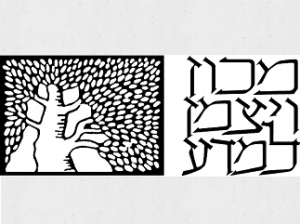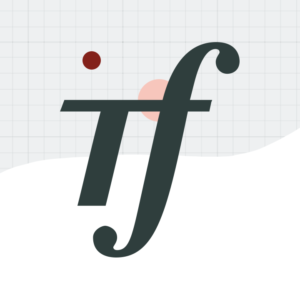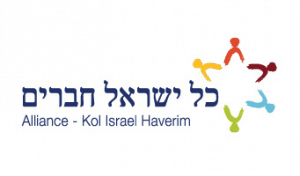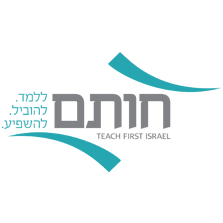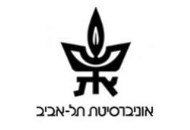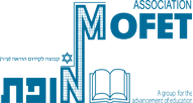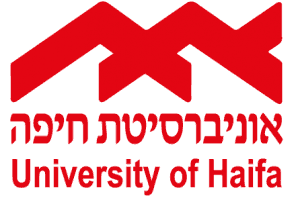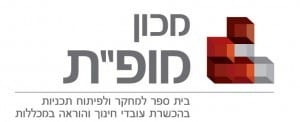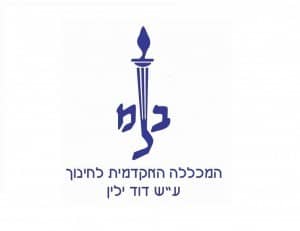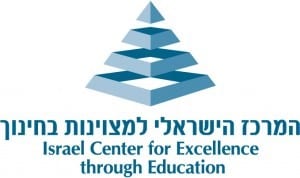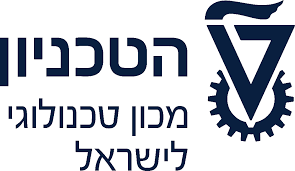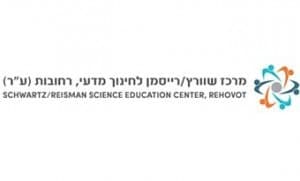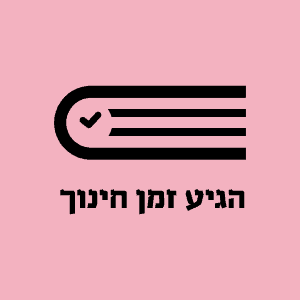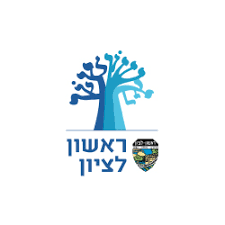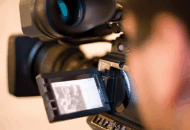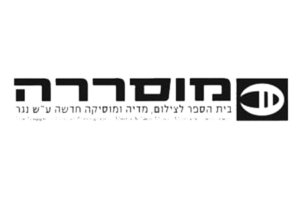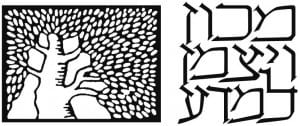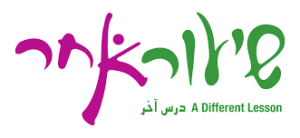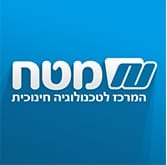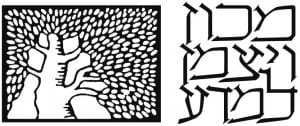The study of chemistry in Israeli high schools, as with mathematics and physics, has also suffered a decline in the last decade, however at a more modest rate of just over 10%, from 6,976 five-unit graduates in 2007 to 6,243 in 2012. The profile of a chemistry student has unique characteristics – more than 65% […]
Two years ago, the foundation began preparing for its end-to-end mid-term review. We embarked on a documentation project to examine various aspects of our work, and commissioned seven case studies to experts who gathered data, conducted interviews and formulated narrative and analysis reports. These reports set the basis for a comprehensive review, which was conducted […]
For the past decade, Israeli schools, especially those in the periphery, have focused on increasing the percentage of students eligible for matriculation. To fulfil this goal, they devoted effort and attention to helping weak students, diversifying teaching methods, encouraging motivation and improving general management capacities. Now, as the target is shifting towards expanding excellence in […]
Schools in the periphery have always found it harder to recruit talented teachers due to the distance, the working conditions and the more limited opportunities for the families of teachers. Government incentives for teachers to relocate to the periphery are in many cases ineffective, as in practice, they supplement salaries for veteran local teachers. The […]
In every middle school there is a team of mathematics teachers, ranging in size, who teach a number of different grades and levels, and are essentially responsible for giving their students a strong foundation of knowledge and skills. The quality of instruction and support at this stage of learning determine the scope of the pipeline […]
In 2012 the Trump Master Teacher Award was launched in order to recognize excellent teaching of mathematics and the sciences. The award aims to celebrate master teachers of these subjects and introduce them to the public as role models for high quality teaching practice in Israel, thus igniting discussion around the question: ‘What constitutes excellent […]
Professional learning communities of teachers are at the heart of the foundation’s strategy. In such communities, teachers jointly develop clinical teaching techniques and engage in an ongoing improvement of their practice. Over the past five years, the foundation has invested approximately 20 million NIS in a number of programs, enabling hundreds of mathematics and science […]
In an attempt to create a more personalized, student-focused mathematics and science teaching, the foundation has turned to academic institutions to develop diagnostic assignments tailored to the curriculum and based on research on typical learning difficulties. A series of projects at the Weizmann Institute, Tel Aviv University, and the University of Haifa are currently in […]
In the past decade, only a few dozen mathematics degree graduates have chosen to pursue a career in teaching. At the University of Haifa, for example, approximately 10 students register for a teaching diploma track in mathematics each year. As a result, primary efforts to train the next generation of mathematics teachers are targeted towards […]
At the outset of the foundation, we approached the Szold Institute to collect data and shed light on the state of physics teaching in Israeli high schools. The study revealed that only 484 schools out of 1,129 offer a physics major, that classes are relatively small, the dropout rate is very high, the ratio of […]
Over the last few years, a substantial number of mathematics and science teachers have approached retirement age. This has caused a severe shortage of teachers and as a result, many schools have closed the doors on advanced mathematics, physics and chemistry. To address this decline, the foundation, in collaboration with the Ministry of Education and […]
The teaching of physics, chemistry and biology in junior high school in Israel is organized in one integrated science subject. The Ministry of Education allots schools a standard of five weekly teaching hours for this subject, although in practice many schools allocate only four. The teachers are typically biology teachers, and as a result students […]
Jerusalem is one of the low performing cities in Israel with regards to mathematics and the sciences. Currently, there is a growing shortage of physics teachers in the Jerusalem area, which has already contributed to five high schools closing their physics tracks in recent years due to the retirement of veteran teachers which is due […]
The traditional approach to reducing social inequalities in education in Israel has been to focus on low performing students reaching the basic standards of the matriculation. The foundation’s Advisory Council however, recommended a different approach, which is to concentrate on the second tier of students and cultivate their efforts to excel. This approach relies on […]
The past few years have seen a significant investment of resources in order to double the number of 5-unit mathematics students. Recently, efforts are starting to bear fruit, and this year 12,800 twelfth grade students took the 5-unit mathematics matriculation exam. This endeavor requires a quick increase in the number of 5-unit mathematics teachers. To […]
Over the past few years, as many veteran mathematics and science teachers have retired, a number of teacher training programs have been established to build the next generation of teachers. One of these programs, “Mabatim”, is a two-year academic program for Technion graduates, which offers an additional degree in Science Teaching free of charge. Initiated […]
Twenty-five years ago, Haim Harari, then President of the Weizmann Institute, prepared a report for Yad Hanadiv (the Rothschild Foundation) on the future of science education in Israel. This report set the basis for a public committee, appointed by the Ministry of Education, which recommended on a substantial reform. With significant supplementary budget, the Harari […]
In 2015, the Trump Foundation embarked on a pilot year of serving as a convener. We took on this role as a proactive step to increase coherence, collaboration and effectiveness between programs and to encourage sustainability of the foundation’s strategy among its partners. We did so in response to the request and expectation expressed by […]
Three years ago, the foundation established an online community, under the name: “It’s Time for Education” (Higiya Zman Hinuch). It quickly became extremely active, and today comprises the largest social media educational community in Israel with a membership of over 30,000 teachers, potential teaching candidates, and people interested in mathematics and science education. This unique […]
Rishon LeZion is Israel’s fourth largest city, with a population of close to 236,000 inhabitants, located along the central coastal plain, south of Tel Aviv. It is one of the fastest-growing cities in Israel, and is the third-youngest city in the country, as 31.1% of the population are children and teenagers, and 61.4% of all residents are […]
In order to further widen the pipeline of potential students and increase their readiness for 5-unit study in high school, junior high school students need to build a solid foundation of mathematics knowledge and skills. In recent years, the middle-school curriculum has been significantly revised in line with this need, to include tasks that invite […]
Petach Tikva is a large city in the Central District of Israel, with one of Israel’s fastest growing populations, numbering approximately 225,000 residents, with 40% national Orthodox or ultra-Orthodox. About 14,500 students attend secondary education in the city (2,400 per year group). There are eight high schools in the secular system (of which 6 have […]
Typical professional development courses for teachers involve lectures by academic experts, enriching the participants with theories and innovations. As this sort of training has proved to have limited effect on the quality of teaching, successful education systems around the world have decided to make their in-service training programs more practical, by using different tools that […]
The Naggar School of Photography, Media, New Music, Animation and Phototherapy, teaches 140 undergraduate art students and produces several gallery exhibitions every year. The Naggar School proposes to curate a photography and video art exhibition on teachers, which aims to grapple with and capture the realities of teaching practice. It will present approximately forty images […]
Three years ago, the foundation supported a physics diagnostics program at the Weizmann Institute, which aimed to develop a database of 150 diagnostic assignments, designed to help teachers diagnose students’ difficulties, typical errors and common misconceptions. In addition, they aimed to develop one hundred short learning tasks and teaching strategies to help the teacher adapt […]
Junior High mathematics and science classes are large, students have varied knowledge and abilities, and the curriculum is packed and fast-paced. As a result, it is difficult for teachers to diagnose each individual student’s capabilities and difficulties in real-time and adapt teaching methods accordingly. A consequence of this is that many teachers teach to the […]
As five-unit mathematics classes become larger and more diverse, we are seeing selective teaching, which identifies and cultivates only the excelling students, shift towards a more nurturing teaching, one that diagnoses and addresses the abilities and difficulties of each student. This transition is however very difficult, as studies show that many teachers tend to be […]
One-hundred high schools are at the core of the recently established National Initiative to increase excellence in mathematics and science education. Titled: Mathematics First, the program aims to significantly increase the number of students graduating high school with science and mathematics matriculation over a period of five years. Within this framework, the Ministry of Education […]
Advanced level mathematics teachers face similar challenges, however they rarely collaborate with each other, and typically refrain from participating in professional development workshops. In other countries and in other subject areas in Israel, teacher isolation is curtailed by engaging them in professional learning communities, in which they share their knowhow, consult with peers and improve […]
The Trump Foundation’s clinical teaching strategy relies on teachers jointly developing their practice in the framework of a ‘professional learning community’ (PLC). Currently we support six programs at the Weizmann Institute, Haifa University, Branco Weiss Institute and Kadima-Mada, which operate dozens of PLCs for hundreds of teachers of physics, mathematics, chemistry and STEM subject heads […]

